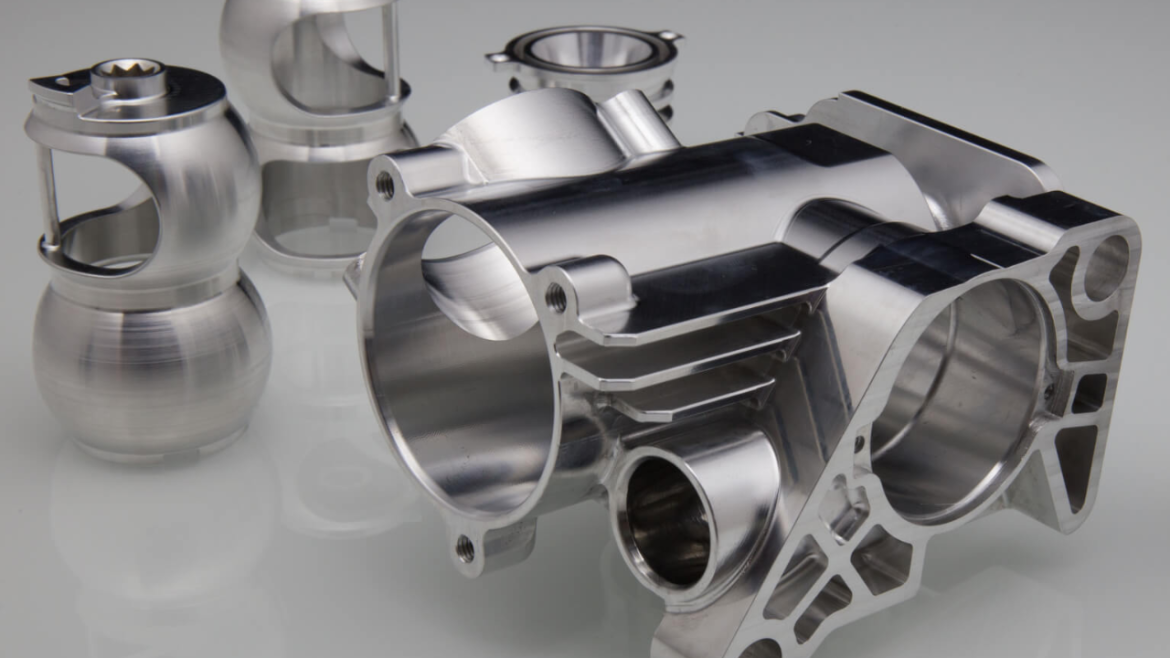Machine tools are moved across the surface of aluminum materials via CNC machining, which makes use of computer software and additional complementary hardware. Utilizing computer programs and other complementary hardware cnc machined aluminum moves machine tools across the surface of aluminum materials. The simple usage of aluminum alloys in producing goods is known as aluminum machining.
High-precision and extremely accurate machined items are produced by this procedure. Aluminum is highly helpful in machining operations due to its great productivity and accessibility in a variety of grades. Because of its inexpensive price, it is also perfect for specialized forging and experimentation.
What is CNC Machining, and How Does it Apply to Aluminum?
In the manufacturing process known as CNC machining, substances are carefully cut, shaped, and finished by machines controlled by computers (CNC machines). Using this method, aluminum, a versatile and widely used metal, is frequently machined. To cut pieces from aluminum standards and produce complex forms, CNC machines adhere to computer-generated directions.
What Makes Aluminum Such a Popular Material for Making Medical Devices?
Due to its advantageous characteristics, such as being lightweight, resistant to corrosion, and compatible with life, aluminum is valued in the medical device business. Due to these characteristics, it can be used for implants and other medical devices that communicate with the human body. Aluminum may be CNC-machined to maintain these essential qualities while producing intricate and precise pieces.
The Medical Device Industry is changing as a Result of CNC Machining Aluminum
Computerized controls are used to run and operate machinery throughout the manufacturing process known as CNC (Computer Numerical Control) machining. The design, production, and use of medical equipment have all been considerably changed by the CNC machining of aluminum in the medical device sector.
Precision and Customization:
The medical device sector requires extremely high levels of precision, which CNC machining enables. To ensure that medical equipment performs precisely and securely, complex designs and strict tolerances are frequently needed. Devices made with CNC machines may create components with consistently high levels of precision, meeting tight regulatory requirements.
Complex Geometries:
Medical equipment with complex geometries, such as devices, instruments for surgery, and instruments for diagnosis, are frequently difficult to fabricate using conventional techniques. These intricate shapes may be accurately produced by CNC machining, allowing the manufacture of novel and effective medical devices that were previously unachievable.
Material Choice:
Due to its good qualities, such as being portable, resistant to corrosion, and biocompatible, aluminum is a common material choice in the medical business. Aluminum can be precisely shaped and cut using CNC machining, making it ideal for producing sophisticated medical device elements that need these features.
Shorter Lead Times:
The adoption of CNC machining has helped to make medical device production faster. CNC machining can start as soon as a digital design is available. Medical device producers can react to market demands more swiftly thanks to this effectiveness in manufacturing.
Minimally Invasive Procedures:
The innovation of lightweight surgical procedures and machinery has been aided by advancements in CNC machining. These gadgets must have delicate components that CNC machining can make precisely, and they must be smaller and more exact. Shorter patient recovery periods, a lower chance of problems, and better outcomes for patients all result from minimally invasive procedures.
Cost-Effectiveness:
CNC machining frequently turns out to be cost-effective in the long run, despite having higher initial expenses due to the requirement for CNC equipment and qualified workers. Furthermore, the capacity to produce exact parts lessens the possibility of mistakes and the requirement for rework.
Regulatory Compliance:
To guarantee the safety of patients, the medical device business is subject to stringent regulatory standards. Manufacturers can comply with these rules thanks to CNC machining’s capacity to create reliable and high-quality parts. Devices made with CNC machining are more accurate and repeatable, helping them to meet or surpass governmental criteria.
At the End
The elaborate designs and complex geometries required for medical devices may be produced thanks to the quality provided by CNC machining. Due to aluminum’s characteristics and advantages, aluminum is frequently utilized in machining. Aluminum alloys machined by CNC make the process even smoother. Knowing this will enable you to choose an alloy for your manufacturing process with confidence. However, it is always preferable to have qualified hands working alongside you.
